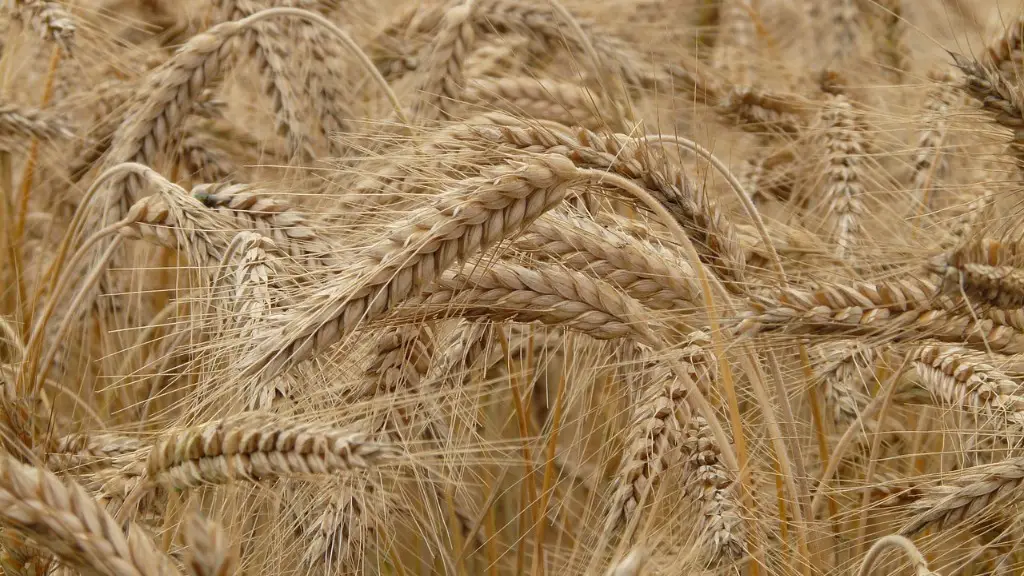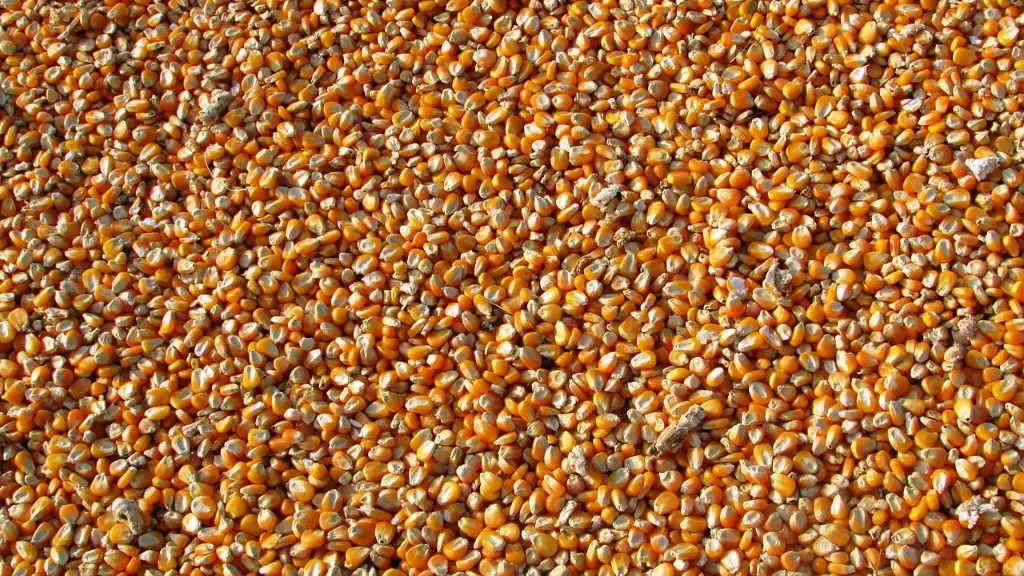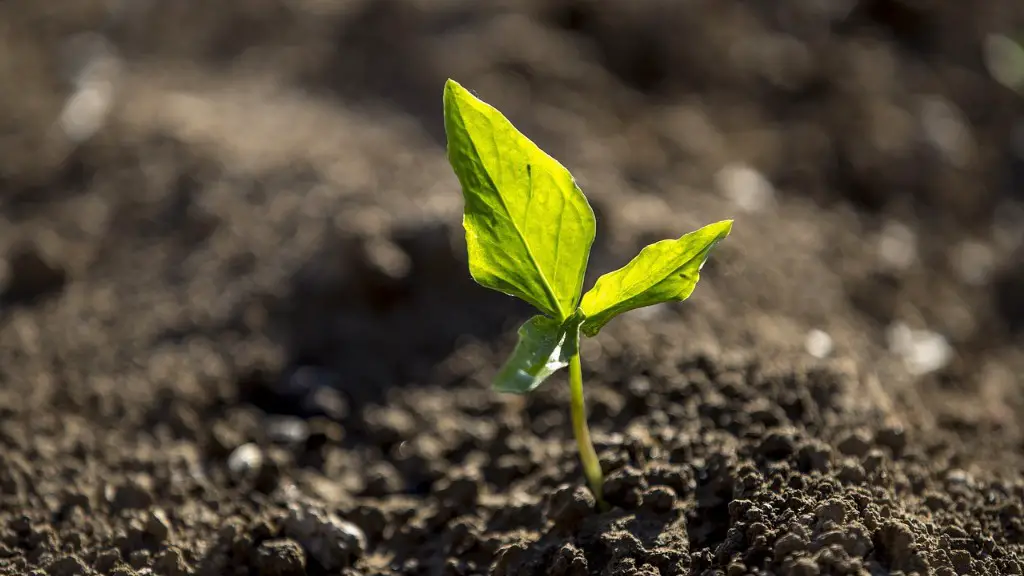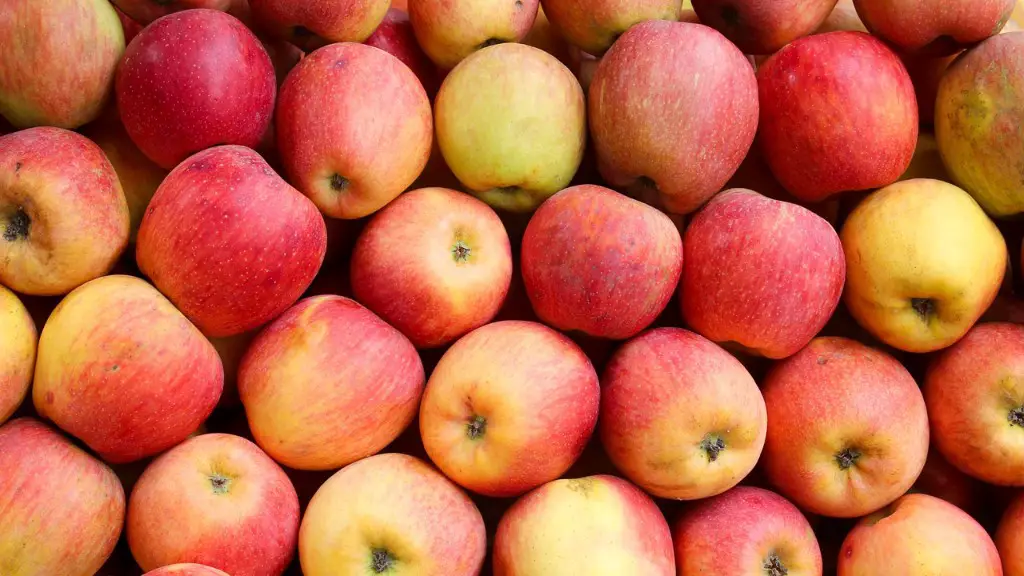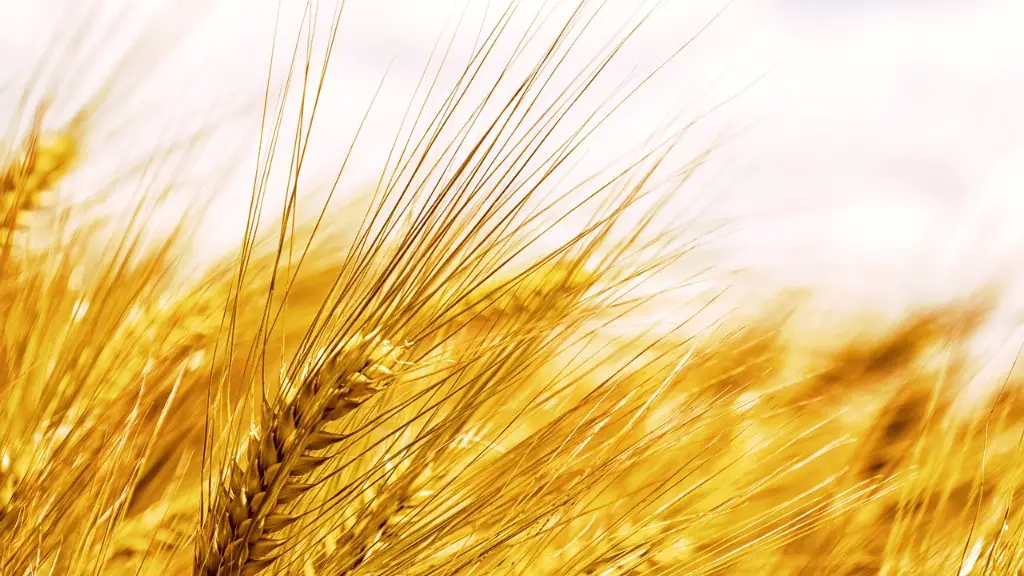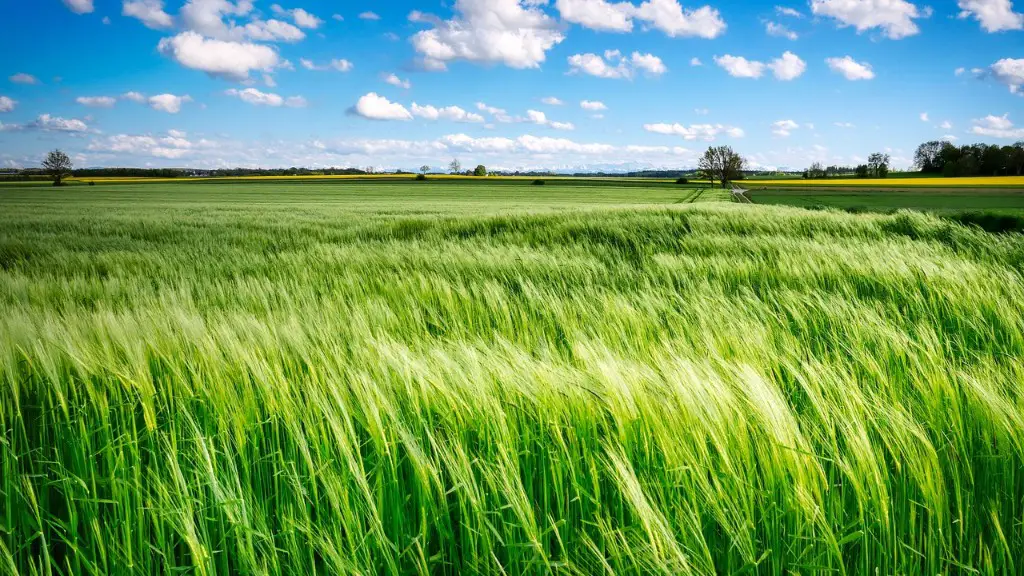Agriculture has been a mainstay of many societies for millennia. It is one of the oldest industries and it has played a critical role in providing sustenance for populations across the globe. With advances in technology, agriculture has become increasingly industrialized, resulting in more efficient production and higher yields.
Industrial agriculture is a system of agricultural production that utilizes modern methods and technology to maximize efficiency and increase production. This system has led to larger farms, greater use of inputs such as chemical fertilizers and pesticides, and mechanization of labor. Industrial agriculture has been a major driving force in the global food supply and plays an important role in feeding the world.
The most significant factor that has enabled the industrialization of agriculture is the emergence of new technologies. These technologies allow farmers to access accurate and precise information about their crops, such as soil data, water requirements, and nutrient levels. This enables more efficient use of inputs and better yields. For example, advances in GPS technology are allowing farmers to more precisely target their crops and increase yields.
Other technologies, such as automation, are allowing farmers to further streamline their operations. Automated systems can help reduce labor costs, improve efficiency, and increase yields. Automated systems can also help reduce the need for manual labor, thus helping to reduce the cost of production.
The emergence of big data has also had a significant impact on the industrialization of agriculture. Big data allows farmers to gather vast quantities of data about their crops, enabling them to make more informed decisions. Farmers can use this data to predict market trends and plan for the future, enabling them to maximize their yields.
Industrial agriculture has also resulted in a decrease in the cost of production. The efficiency of industrial production and the use of mechanization and automation have been major contributing factors in this cost reduction. This has enabled farmers to increase their output and still make a profit, making industrial agriculture a profitable business.
Overall, the emergence of modern technologies and the industrialization of agriculture has had a significant impact on agriculture around the world. It has led to increased yield, lower costs of production, and more efficient use of resources. Industrial agriculture has enabled farmers to increase their output and remain profitable, while also providing a more stable source of food for the world.
Impact of Industrialization in Agriculture
Agriculture has been an important part of many societies since the beginning of civilization, with traditional farming practices giving way to new and improved farming technologies. Industrialization of agriculture has had a great impact on the efficiency of farming practices, increased food production, and decreased production costs. This industrialization has been enabled by advances in technology, including increased automation and the use of big data to analyze and predict market trends. Industrialization has also had a significant effect on rural communities, as more people have been able to pursue other opportunities besides farming.
The use of automation has allowed for many agricultural processes to become faster, more efficient, and more cost-effective. This has greatly contributed to the increase in agricultural productivity. Automation also ensures that farmers save time and money by reducing labor costs, and better utilize their resources. Automated systems can also reduce the need for manual labor, thus reducing the cost of production.
The use of big data is also crucial for modern agriculture, as it helps farmers gather detailed and accurate information about their crops and environment. These data allow farmers to make more informed decisions and help predict market trends. The use of big data has also been instrumental in developing more efficient farming techniques, as they help farmers to identify the best combination of inputs in order to maximize outputs.
Furthermore, industrialization has also had a profound impact on the communities in rural areas. As farms become larger and more efficient, fewer people are needed on the farm, and many have been able to make a living outside of agriculture. This has allowed people to pursue other opportunities, such as tourism and services, helping the local rural economy to prosper.
In addition, industrialization of agriculture has made food easier and cheaper to obtain. The increased efficiency of farms has enabled them to produce larger quantities at lower costs, reducing the overall cost of food for consumers. This also decreases the cost of food for people living in rural areas, where food may otherwise be too expensive due to transportation costs.
Advantages of Industrialized Agriculture
Industrialized agriculture has been a major factor in the global food supply and has many benefits. The advances in technology have led to increased efficiency and larger yields, reducing costs for both farmers and consumers. The use of automation has allowed for the mechanization of labor, resulting in fewer people needed on farms in rural areas. This has allowed people to pursue other opportunities, increasing the economic strength of rural areas. Additionally, the use of big data has helped farmers understand more precisely their crops and market trends, allowing them to maximize their yields.
The industrialization of agriculture has also improved food safety and nutrition. Automated systems have made food production more efficient and increased yield, allowing them to be distributed faster and more widely. This in turn, has led to better nutrition and better access to food across the world. Additionally, with advances in food preservation and storage technologies, people have been able to consume food from different parts of the world year-round, boosting health and nutrition.
Industrial agriculture has also had an effect on the environment. The increased efficiency of farms has allowed for higher outputs with fewer resources, and technologies such as GPS have allowed for more precise targeted farming, reducing waste. This is especially true for organic farming, which has seen a resurgence in recent years.
Lastly, industrial agriculture has also allowed for the success of other industries. Many industrial processes rely on agricultural inputs such as fuel and food, and the increase in efficiency and productivity has meant these industries are able to thrive. This in turn, has had a positive impact on the economy as a whole.
Disadvantages of Industrialized Agriculture
Despite the numerous advances in agricultural technologies, there are some drawbacks to industrialization. The increased use of chemical fertilizers and pesticides has caused environmental damage, including soil pollution and degradation, water contamination, and the destruction of wildlife habitats. Additionally, the use of automation and mechanization has led to a decrease in the number of people employed in agricultural jobs. This has caused a strain on small rural communities that relied on the income from agricultural jobs.
Industrialized agriculture has also led to decreased genetic diversity in crop varieties. Large-scale factories and farms have led to the adoption of fewer crop varieties that have been bred for uniformity and resistance to pests, rather than for flavor or nutrition. This has meant that farmers have had to rely on fewer varieties, reducing diversity in the agricultural system.
The overreliance on industrial agriculture has also increased the vulnerability of food systems. As farms have become more industrialized, they have become more dependent on large corporations and agribusinesses for their inputs and resources. This has made farming systems more prone to economic shocks, and has increased the risk of food shortages in times of economic distress.
In addition, the use of big data has introduced privacy concerns. Big data can be used to help farmers more accurately understand their farms and crops, but it also provides corporations with detailed information about farmers, which can be used for data-driven marketing campaigns and other activities. This has raised fears over the potential misuse of data.
Conclusion
The industrialization of agriculture has been a major factor in modern society, allowing the global food supply to keep up with the population. It has allowed for increased efficiency and larger yields, while reducing costs for both farmers and consumers. However, it has also introduced environmental concerns and privacy issues, as well as created a more vulnerable food system. Ultimately, the effects of industrialization in agriculture are varied and complex, and there are many issues to consider as the industry continues to evolve.
